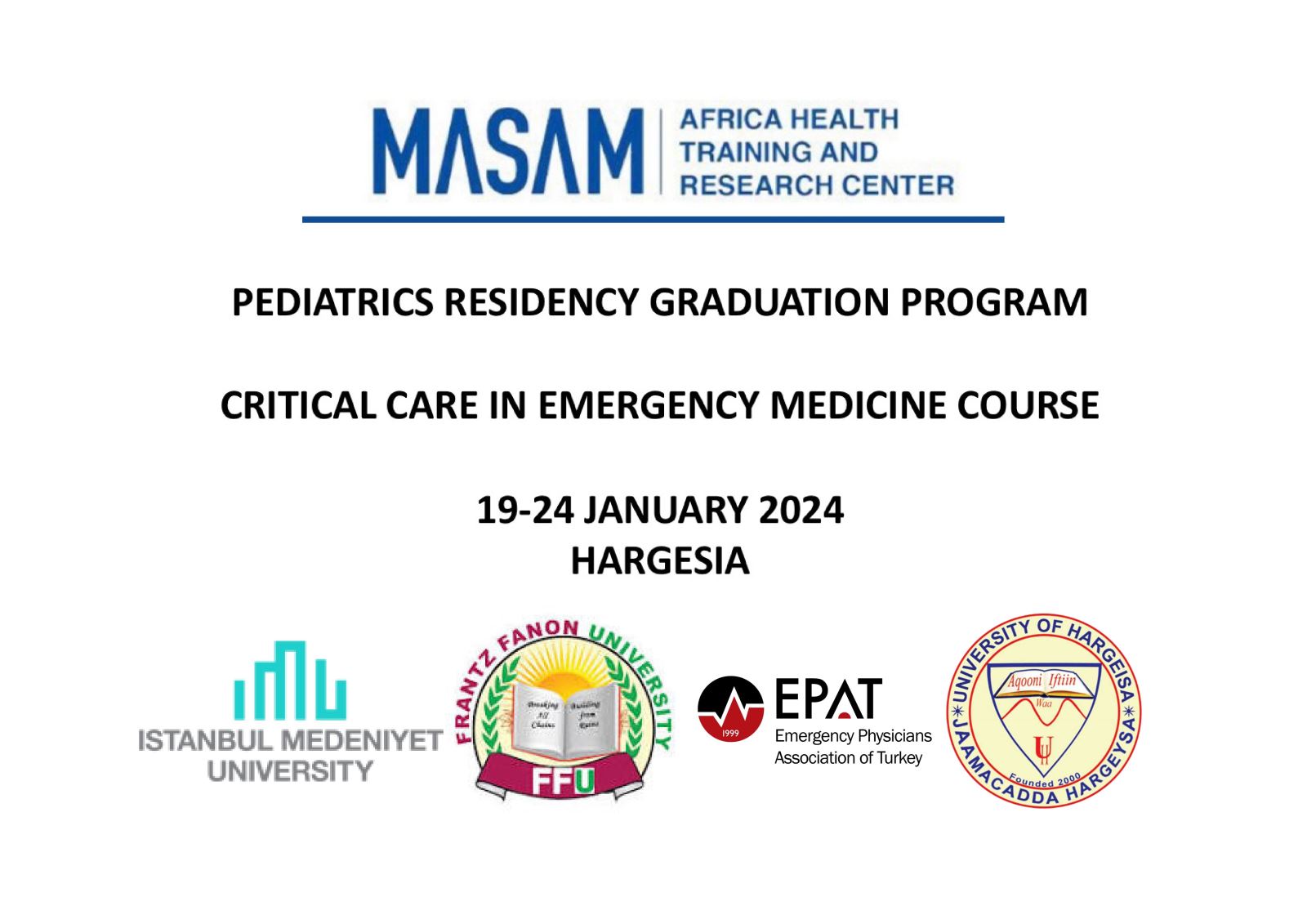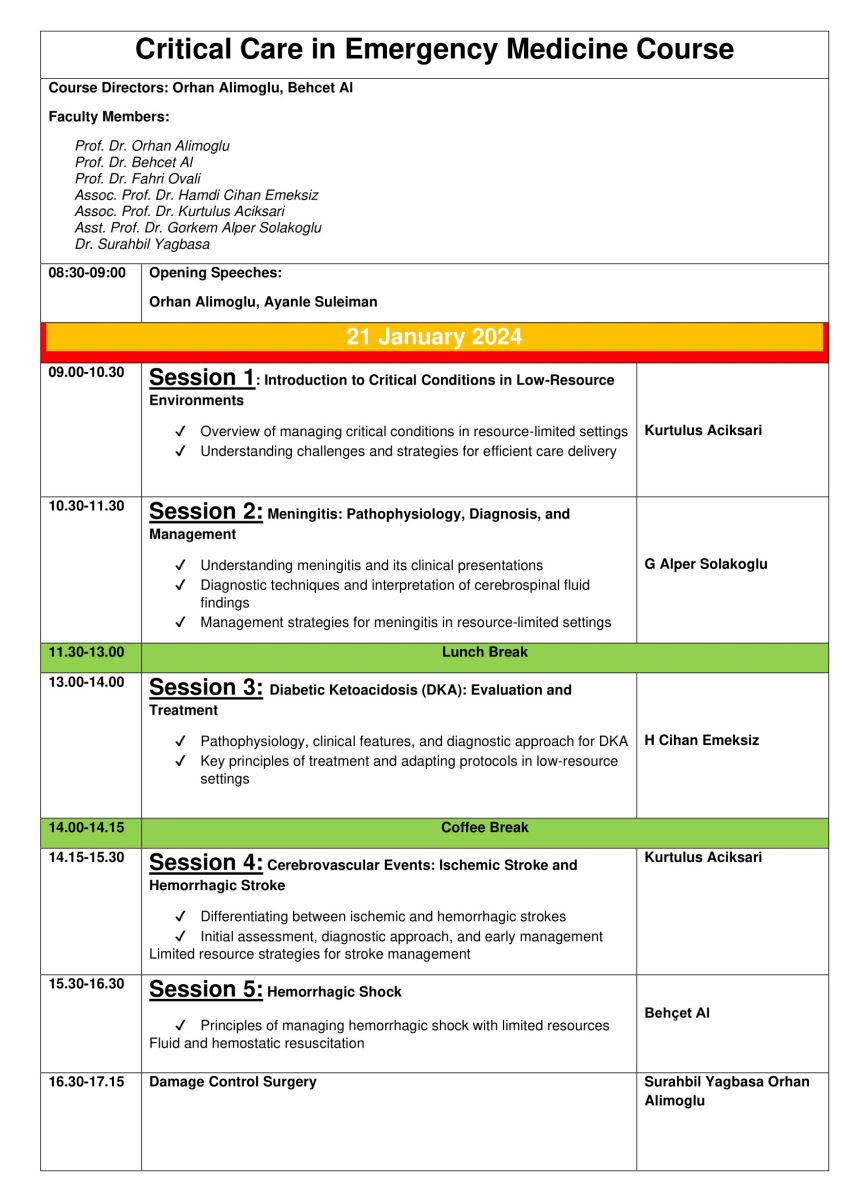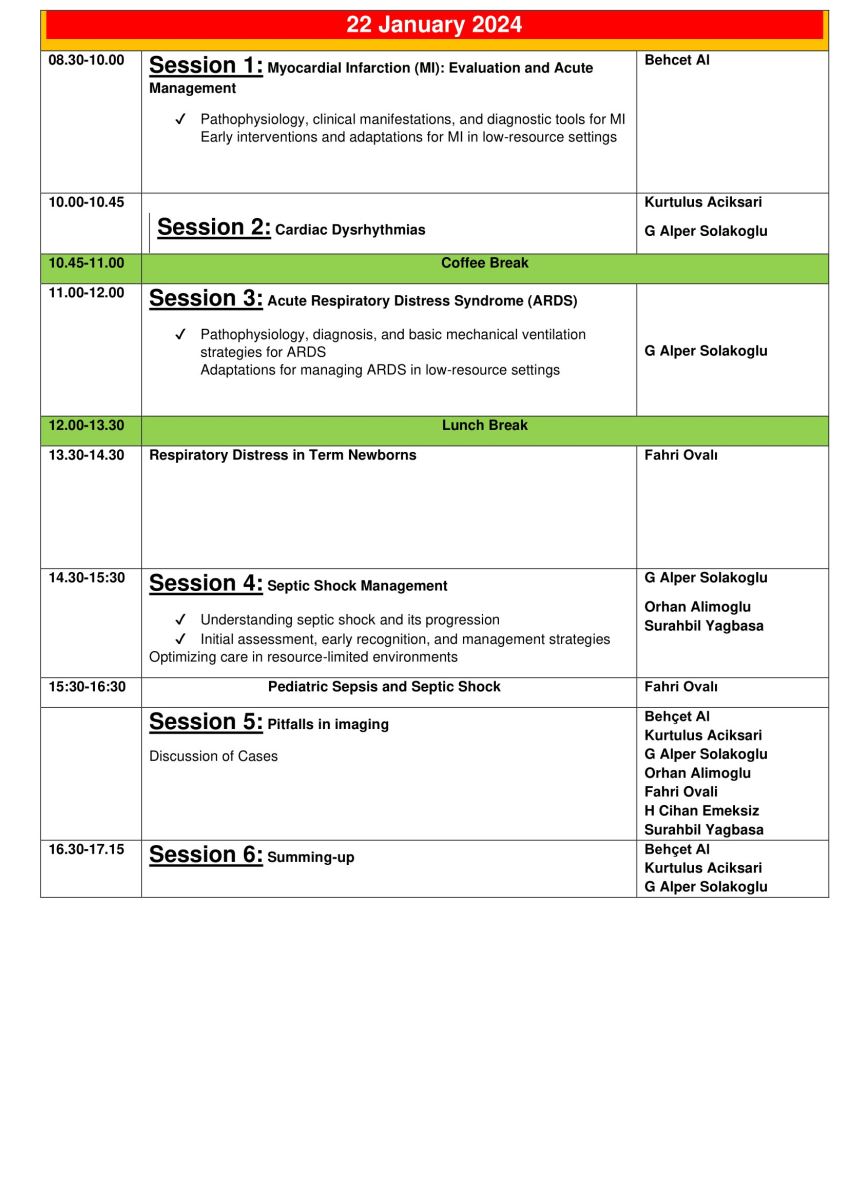
Learning Objectives: Critical Care in Emergency Medicine Course
-
Gaining an overview of managing critical conditions in resource-limited settings.
-
Understanding challenges and strategies for efficient care delivery.
-
Acquiring knowledge on meningitis and its clinical presentations. Diagnostic techniques and general interpretation of cerebrospinal fluid findings.
-
Comprehending the pathophysiology, clinical features, and diagnostic approach for diabetic ketoacidosis.
-
Differentiating between ischemic and hemorrhagic strokes, learning initial assessment, diagnostic approach and early management.
-
Understanding the pathophysiology, clinical manifestations, diagnostic tools and early intervention strategies for myocardial infarction.
-
Understanding septic shock progression, initial assessment, early recognition, and management strategies.
-
Grasping the pathophysiology, diagnosis, and basic mechanical ventilation strategies for acute respiratory disease syndrome.
-
Gaining insight into acute kidney failure, diagnostic approaches, and management.

